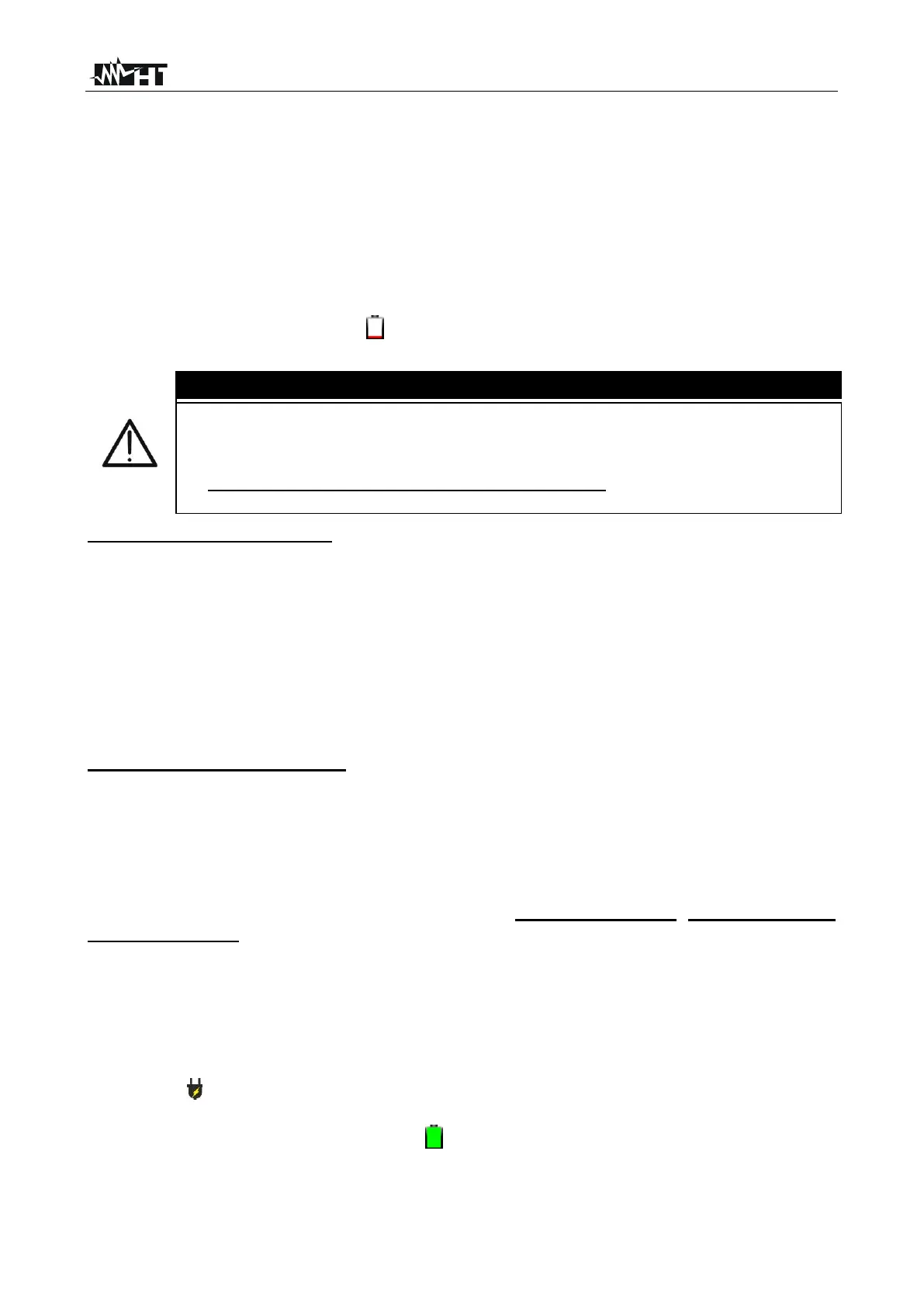9. MAINTENANCE
9.1. GENERAL INFORMATION
During use and storage, the recommendations in this manual must be followed to avoid
possible damage or danger to the operator. Do not use the instrument in environments
characterized by humidity or temperatures outside the environmental conditions indicated
in § 10.3. Do not expose to direct sunlight. Always switch off the instrument after using it. If
the instrument is to be left unused for a long period of time, remove the batteries to
prevent leaking and damage to the internal circuits of the instrument.
9.2. REPLACING OR RECHARGING INTERNAL BATTERIES
When the low battery symbol " " appears on the display, replace (if using alkaline
batteries) or recharge (if using NiMH rechargeable batteries).
• This operation must be carried out by skilled technicians only. Before
carrying out this operation, make sure that all the cables have been
removed from the input terminals
• Only use the supplied HT power supply unit to recharge the batteries in
order to avoid possible damage to the instrument
Replacing internal batteries
1. Switch off the instrument
2. Remove the cables from the input terminals
3. Unscrew the screw securing the battery cover (see Fig. 1 - part 6) and remove it
4. Remove all the alkaline batteries and replace them with others of the same type (see §
10.2) making sure the polarity is correct (see Fig. 3)
5. Put back the battery compartment cover and fasten it by means of the appropriate
screw
6. Do not dispose of the used batteries in the environment. For disposal, use appropriate
containers
Recharging internal batteries
The instrument has a sophisticated algorithm (BMS) that allows you to extend the
autonomy of the batteries using the energy taken from the PV system under examination.
In particular, it is able to power itself and recharge the batteries, based on the operating
modes when it is connected to the strings, exploiting the energy supplied by the PV
system and that stored during the measurement. Complete recharging of the batteries
must always be carried out using the external power supply supplied. The external power
supply recharges the batteries with the instrument both ON and OFF. Do not recharge
alkaline batteries. Proceed as follows:
1. Switch off the instrument
2. Remove the cables from the input terminals
3. Move the sliding cover on the inputs to the right (see Fig. 1 - part 9) so that the "Ext
P.Supply” input can be used
4. Switch on the instrument
5. Plug the external power supply unit into the instrument and connect it to the mains. The
symbol “ ” in the top right corner of the display indicates that the internal batteries are
being charged
6. Continue recharging until the icon " " appears when removing the external power
supply unit
9.3. INSTRUMENT CLEANING
Use a dry and soft cloth to clean the instrument. Never use wet cloths, solvents, water, etc.
